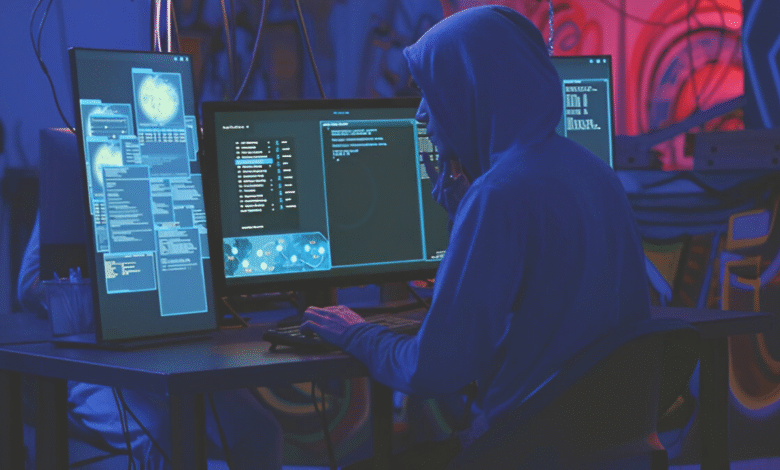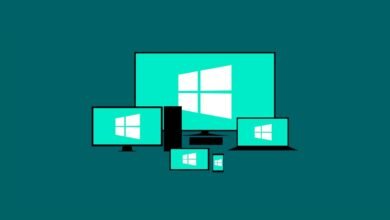Dark Web Explained: What It Is and How to Stay Safe
Dark Web explained. Discover what it is, how it works, risks, and essential safety tips to protect yourself online. Stay secure now.

The Dark Web is one of the most secretive and misunderstood layers of the internet, often associated with illegal activities but also serving as a haven for privacy advocates. Unlike the regular internet that we use daily, the Web requires specialized software like Tor to access, making it a hub for both anonymity and cybercrime. While it has legitimate uses such as protecting whistleblowers and journalists it also harbors black markets, hacking forums, and other illicit operations. Understanding what the Web truly is can help you navigate its risks and recognize its role in the digital world.
Despite its notorious reputation, the Dark Web isn’t inherently dangerous it’s how people use it that determines its risks. Many assume it’s only a playground for criminals, but in reality, it also provides critical privacy protections for those under oppressive regimes. However, accessing it without proper precautions can expose users to scams, malware, and legal scrutiny. This guide will break down how the Web works, its legal and illegal uses, and essential safety measures to stay protected if you ever need to explore it.
Dark Web Explained
What Is the Dark Web?
The Dark Web is a hidden portion of the internet that requires special software, such as Tor (The Onion Router), to access. Unlike the Surface Web (websites indexed by search engines) or the Deep Web (password-protected or private databases), the Web is intentionally concealed and anonymized. Websites on the Web use .onion domains, which are not accessible through standard browsers. This layer of encryption ensures that users and website owners remain anonymous, making it a hub for both legitimate privacy advocates and cybercriminals.
How Does the Dark Web Work?
The Dark Web operates on decentralized networks, primarily using Tor, which routes internet traffic through multiple servers worldwide. This process, called onion routing, encrypts data in layers, making it extremely difficult to trace users. Because of its anonymity, the Web hosts a mix of legal and illegal activities. While some use it for secure communication, others exploit it for black markets, hacking tools, and illicit transactions. Understanding its mechanics helps differentiate between its legitimate uses and criminal elements.
Legal vs. Illegal Uses of the Dark Web
Not everything on the Dark Web is illegal. Many users rely on it for privacy protection, especially in countries with strict censorship. Journalists, whistleblowers, and activists use it to share sensitive information without fear of retaliation. However, the Web is also infamous for illegal marketplaces selling drugs, stolen data, and weapons. Law enforcement agencies actively monitor these activities, leading to high-profile busts like the shutdown of Silk Road. Recognizing these distinctions is key to understanding the Web’s dual nature.
Risks of Accessing the Dark Web
Browsing the Dark Web comes with significant risks. Since anonymity attracts cybercriminals, users may encounter scams, malware, and phishing schemes. Hackers often exploit vulnerabilities in Tor to deliver malicious software. Another danger is law enforcement scrutiny. Even if you’re not engaging in illegal activities, simply accessing certain sites can raise suspicions. Additionally, some Web marketplaces are honeypots set up by authorities to catch criminals.
How to Access the Dark Web Safely
If you choose to explore the Dark Web, taking precautions is essential. Always use the Tor Browser, which is designed to protect your identity. Avoid downloading files or clicking on suspicious links, as they may contain malware. A Virtual private network (VPN) adds an extra layer of security by masking your IP address. Never use personal information or real credentials on Web sites. These steps minimize exposure to cyber threats and legal risks.
Protecting Yourself from Dark Web Threats
Cybercriminals often sell stolen data on the Dark Web, including passwords, credit card details, and Social Security numbers. To protect yourself, enable two-factor authentication (2FA) on all accounts and use strong, unique passwords. Regularly monitor your financial statements for unauthorized transactions. Services like Have I Been Pwned can check if your email has been compromised in a data breach. Staying proactive reduces the chances of becoming a victim.
Common Myths About the Dark Web
Many believe the Web is only for criminals, but this is a misconception. While illegal activities do occur, many users rely on it for secure communication and bypassing censorship. Another myth is that accessing the Dark Web automatically puts you on a government watchlist—this isn’t true unless you engage in unlawful behavior. Understanding these myths helps separate fact from fiction, allowing for a more informed perspective on the Web’s role in the digital world.
The Future of the Dark Web
Enhanced Privacy Technologies
The Web will likely see advancements in encryption and anonymity tools, making it even harder to track users. Technologies like quantum-resistant cryptography and decentralized networks could revolutionize privacy. However, this may also benefit cybercriminals, forcing law enforcement to adapt.
Increased Law Enforcement Scrutiny
Governments worldwide are investing in AI-powered surveillance and blockchain analysis to combat illegal activities on the Web. High-profile busts (like Silk Road 2.0) show that even hidden markets aren’t untouchable. Future crackdowns could push criminals toward more secure, decentralized platforms.
Rise of Ethical and Legal Uses
Beyond crime, the Web may grow as a tool for whistleblowers, journalists, and activists under oppressive regimes. Secure platforms like SecureDrop could expand, balancing its reputation between secrecy and social good.
Evolution of Cybercrime
As security improves, Web cybercrime will become more sophisticated—think AI-driven scams or ransomware-as-a-service. New threats will emerge, requiring stronger cybersecurity measures from both individuals and organizations.
Integration With Emerging Tech
The Web may intersect with Web3, blockchain, and the metaverse, creating new anonymous economies. Privacy coins (like Monero) and decentralized apps could reshape how hidden transactions occur, blurring lines between legal and illegal uses.
Public Perception and Accessibility
As awareness grows, the Web could become more mainstream but so will misconceptions. Education will be key to distinguishing its legitimate privacy benefits from its criminal underworld.
Read More: Top 10 Free AI Tools in 2025 That Are Blowing Minds
Conclusion
The Dark Web remains one of the most complex and controversial aspects of the internet, offering both anonymity and risk in equal measure. While it provides essential privacy protections for journalists, activists, and citizens in repressive regimes, its unregulated nature also makes it a breeding ground for cybercrime. Understanding how the Web functions and the precautions needed to navigate it is crucial for anyone considering accessing this hidden part of the web.
Ultimately, knowledge and caution are your best defenses when dealing with the Web. Whether you’re exploring it for legitimate privacy reasons or simply out of curiosity, always prioritize security measures like VPNs, the Tor browser, and strong digital hygiene. By staying informed and vigilant, you can better protect yourself from its dangers while recognizing its role in today’s digital landscape. The Web isn’t going away, so learning to engage with it safely or avoid it altogether is the wisest approach.
FAQs
Is the Dark Web illegal to access?
No, simply accessing the Dark Web isn’t illegal, but engaging in illegal activities while using it is against the law.
How is the Dark Web different from the Deep Web?
The Deep Web includes all unindexed pages (like private databases), while the Dark Web is a small, intentionally hidden subset requiring special tools like Tor.
Can you be tracked on the Dark Web?
While Tor provides strong anonymity, security flaws, malware, or user mistakes can potentially expose your identity.
Why do people use the Dark Web?
Some use it for privacy (journalists, activists), while others exploit it for illegal activities like black markets and hacking forums.
How can I check if my data is on the Dark Web?
Use services like Have I Been Pwned or Dark Web monitoring tools to see if your personal information has been leaked.











